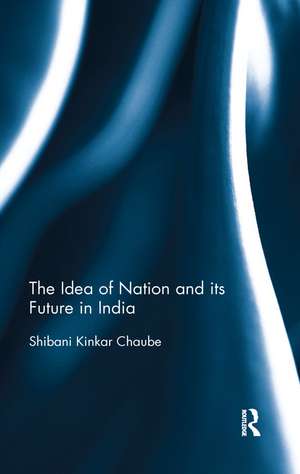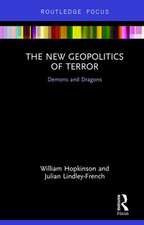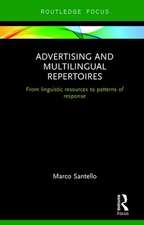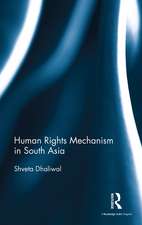The Idea of Nation and its Future in India
Autor Shibani Kinkar Chaubeen Limba Engleză Paperback – 18 apr 2019
| Toate formatele și edițiile | Preț | Express |
|---|---|---|
| Paperback (1) | 416.22 lei 43-57 zile | |
| Taylor & Francis – 18 apr 2019 | 416.22 lei 43-57 zile | |
| Hardback (1) | 1113.12 lei 43-57 zile | |
| Taylor & Francis – 18 oct 2016 | 1113.12 lei 43-57 zile |
Preț: 416.22 lei
Nou
Puncte Express: 624
Preț estimativ în valută:
79.64€ • 83.38$ • 65.90£
79.64€ • 83.38$ • 65.90£
Carte tipărită la comandă
Livrare economică 07-21 aprilie
Preluare comenzi: 021 569.72.76
Specificații
ISBN-13: 9780367177423
ISBN-10: 0367177420
Pagini: 390
Dimensiuni: 138 x 216 x 21 mm
Greutate: 0.45 kg
Ediția:1
Editura: Taylor & Francis
Colecția Routledge India
Locul publicării:Oxford, United Kingdom
ISBN-10: 0367177420
Pagini: 390
Dimensiuni: 138 x 216 x 21 mm
Greutate: 0.45 kg
Ediția:1
Editura: Taylor & Francis
Colecția Routledge India
Locul publicării:Oxford, United Kingdom
Public țintă
PostgraduateCuprins
Indian Paradox: A Confession in Lieu of Preface 1 Introduction 2 State, People and Nation 3 The World of Ethnicity 4 Class and Internationalism 5 India: Resources and Burdens 6 India: The Course of Nation Building BibliographyIndex
Notă biografică
Shibani Kinkar Chaubeis former Professor of Indian Politics, University of Delhi and former Fellow in Parliamentary Studies, Lok Sabha, Parliament of India. Among his books are Constituent Assembly of India: Springboard of Revolution (1973); Hill Politics in Northeast India (1973); Electoral Politics in Northeast India (1985); Politics and Constitution in China (1986); Colonialism, Freedom Struggle and Nationalism in India (1996); Government and Opposition: Parliamentary Democracy in India (2006); The Making and the Working of the Indian Constitution (2009); and Politics of Nation Building in India (2012).
Descriere
This volume is a theoretico-empirical study of nations and nationalism on a global scale. It enquires if the idea of the nation, by its own logic, is feasible and whether India fulfils the requirement of nationhood with a reasonable prospect of survival. The monograph engages with the theories of nation and nationalism and examines if they are relevant and tenable in contemporary times. It looks at the way these ideas have acted out in the Indian nation while attempting to map their future trajectory. It also asks: how do the two fundamental challenges to the idea of nation � ethnicity and class � fare in the era of globalisation; and further, how does India, a new state in an ancient society, reconceptualise the paradigm of this debate? The book will be of great interest to scholars and students of political science, political theory, history, political philosophy, South Asian studies as well as informed general readers.








